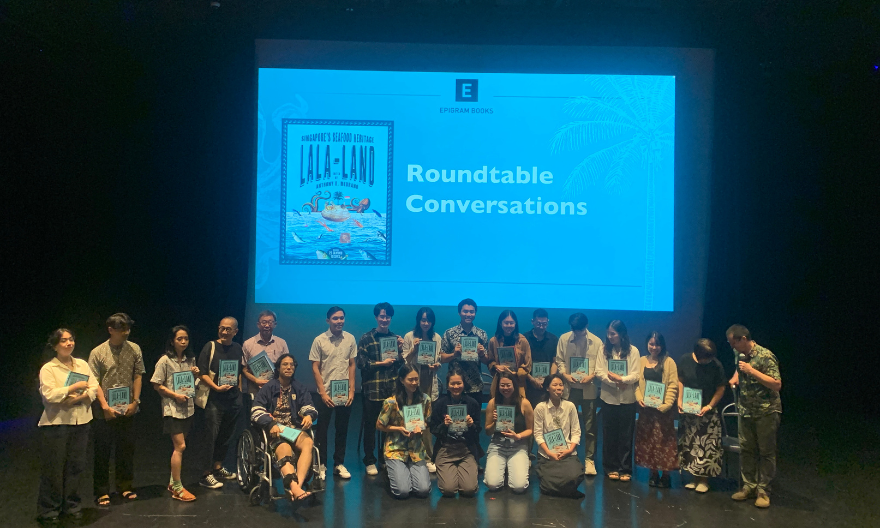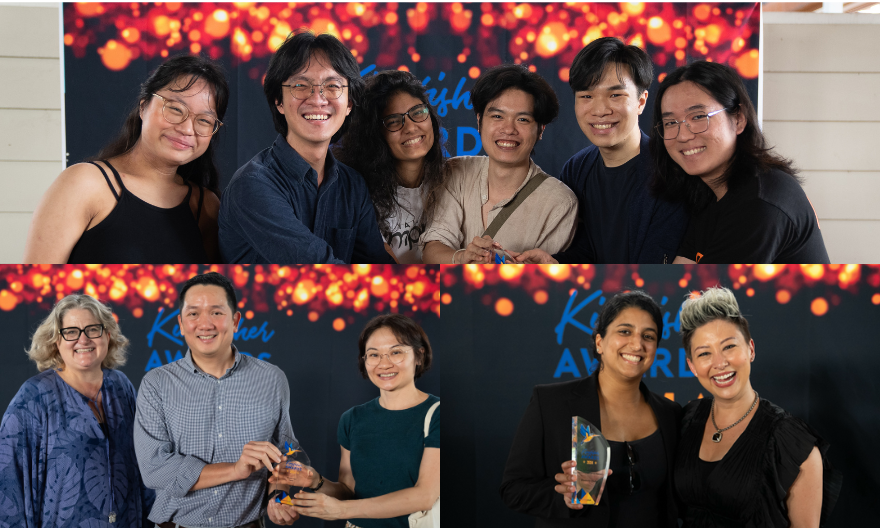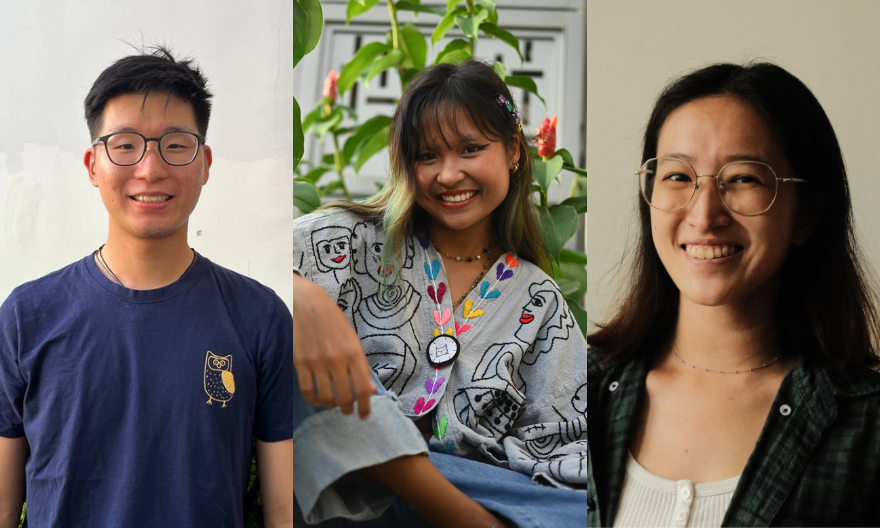Insights on bullying, Chinese history and Baudelaire
Yale-NUS is cultivating a strong residential community where the spirit of academic discussion thrives on campus. Students, faculty and staff engage in stimulating conversations powered by the myriad of views across the community. In the same spirit, the College welcomes many visiting professors and speakers during the academic year.
In March 2015, Yale-NUS hosted a series of speakers, which included Sterling Professor of French, Howard Bloch; Truman Capote Fellow for Creative Writing and Law, Emily Bazelon; and Sterling Professor of History (Emeritus), Jonathon Spence. Professor Spence gave a public lecture under the auspices of the Tan Chin Tuan Chinese Culture and Civilisation Programme which aims increase the understanding of China and Chinese culture amongst the students at Yale-NUS College, the Foundation has supported the Chinese Language Scholarship Programme and co-curricular activities that help deepen our students’ knowledge of China. Ms Bazelon and Professor Bloch spoke as part of the President’s Speaker Series, which brings liberal arts to the community with its public lectures by key personalities and influential experts. The College also hosted eight visiting Yale faculty members who gave talks and conducted special seminars for Yale-NUS students.
Sticks and Stones
On 10 March 2015, prolific writer Ms Emily Bazelon spoke about the culture of bullying and the power of empathy. Her national bestselling book, titled Sticks and Stones: Defeating the Culture of Bullying and Rediscovering the Power of Character and Empathy, was published in 2013.
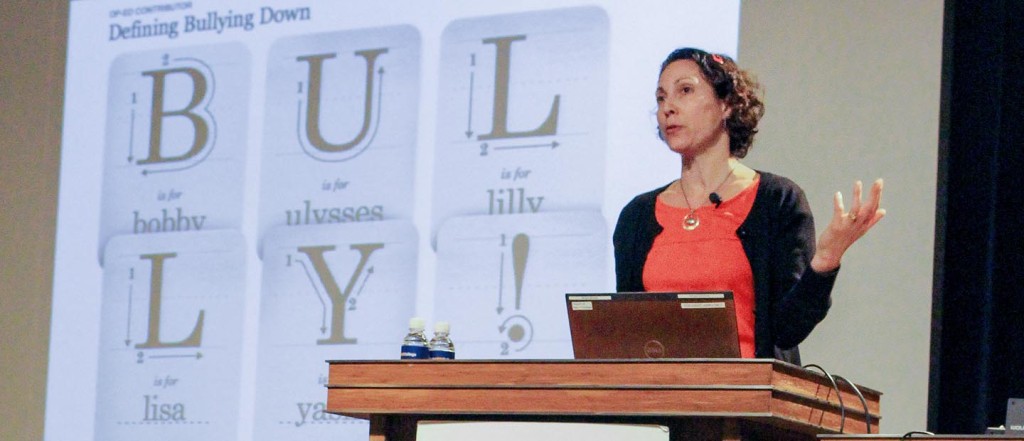
Image by Erika Terrones Shibuya
During her talk, Ms Bazelon spoke about the impact of technology and the Internet on bullying behaviours and the power of empathy, an issue that has received global attention in recent times.
“I got interested in bullying about five years ago, when there started to be a lot of coverage of bullying and its intersection with technology… I find that people bring their own personal experience to it, often some pretty deep memories from childhood,” she explained.
Ms Bazelon noted that the shift over the past decade toward socialising over the Internet has changed the landscape of bullying and social interaction, suggesting that a heavy emphasis on empathy from schools and parents is necessary.
“The power of bystanders is a really important tool for preventing bullying,” Ms Bazelon said, noting methods that schools, parents, peers, and social media sites could use to help teenagers deal with the issue. “Communities of students and parents – we have a lot of power here.”
Ms Bazelon is currently a staff writer at the New York Times Magazine and the Truman Capote Fellow for Creative Writing and Law at Yale Law School.
A Historian’s Life
On 12 March, Professor Jonathan Spence, an internationally recognised leading scholar of Chinese History, and Sterling Professor of History (Emeritus) at Yale University, discussed the experiences in his academic career, during a public lecture titled ‘A Historian’s Life’. Professor Spence has published 10 books on Chinese history to date, notably The Search for Modern China and most recently, Return to Dragon Mountain: Memories of a Late Ming Man (2007).
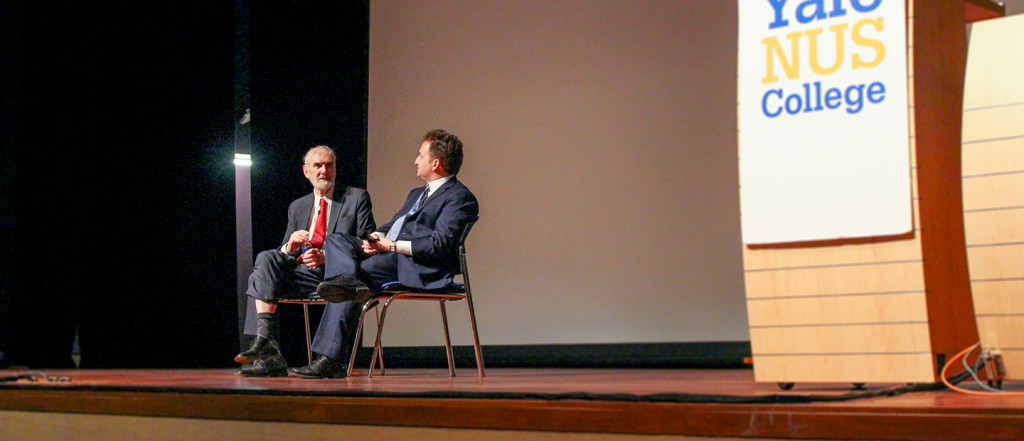
Image by Erika Terrones Shibuya
“China has a sort of pull on you, through its dramatic changes and through the fact that ‘chance’ rules,” Spence remarked.
“There is an extraordinary amount of accidental happenings… historians don’t just walk into some specific problematic area, you zero in on something and you look around it and you find tragedy, perhaps, or human loss. But as you start looking more carefully, you can unravel things in a special way. One of the ways we discuss that process is [in] writing history.”
Professor Spence spoke about his journeys as a historian, discussing various events and interests that influenced his work. His talk was part of the Tan Chin Tuan Chinese Culture and Civilisation Programme. The Programme and the Tan Chin Tuan Professorship in Chinese Studies were established to honour Tan Sri Dr Tan Chin Tuan, whose legacy of philanthropy is transforming lives even today through the Tan Chin Tuan Foundation. Yale-NUS has appointed Professor Scott Cook, an expert in Chinese history, as the inaugural Tan Chin Tuan Professor of Chinese Studies.
Charles Baudelaire and the Question of Modernity
On 18 March 2015, Professor R Howard Bloch gave a talk entitled ‘Charles Baudelaire and the Question of Modernity’. Professor Bloch is Sterling Professor of French at Yale University, whose research interests include medieval literature, gender and the rise of Western romantic love, and the history of printing in the 19th century, among others.
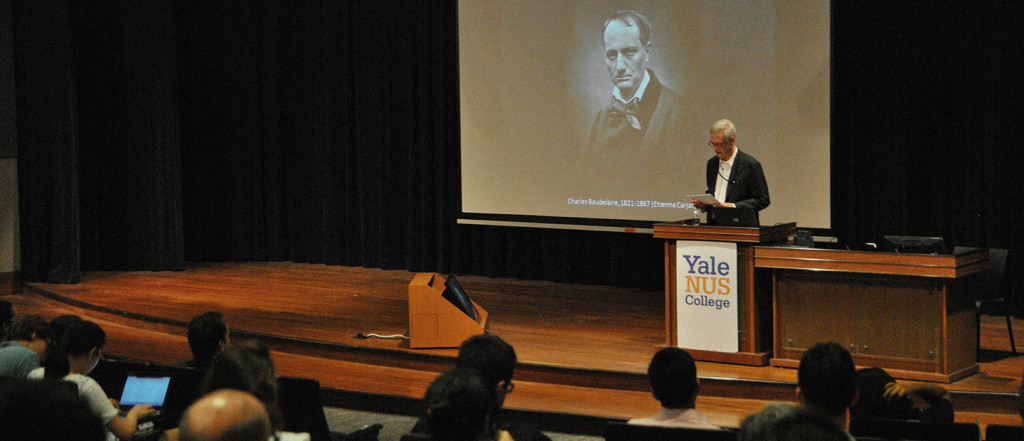
Image by Toh Hui Ran
Professor Bloch spoke on French poet Charles Baudelaire’s relationship to a modernising Paris. He discussed Baudelaire’s attitude towards nature, saying, “For Baudelaire, nature is a form of original sin which can be rectified only by human intention or by art.”
The experience of a city undergoing ‘Haussmannization’, a series of urban changes that transformed Paris into a modern city, affected Baudelaire deeply.
Bloch added: “Baudelaire is both haunted and consoled by his memories of old and new Paris and by those who are not in Paris, but nonetheless share in the experience of exile wherever they are.”
Ultimately, according to Professor Bloch, Paris’ modernisation was not a matter of despair for Baudelaire but instead a process that could be redeemed through art.
Professor Bloch’s most recent book, published in 2006, is A Needle in the Right Hand of God: The Norman Conquest of 1066 and the Making and Meaning of the Bayeux Tapestry.
—
Other speakers in March included Professor Marvin Chun, Richard M Colgate Professor of Psychology at Yale University, and Professor Steven Wilkinson, Nilekani Professor of India and South Asian Studies at Yale University. Tune in to Yale-NUS College’s YouTube channel for more talks and lectures.

